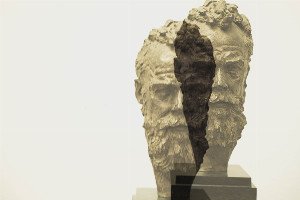Syauqie Muhammad Marier, Fadmi Rina, Amanah Wismarta, Umi Inayatul Hidayah, Muhammad Mufti Ardani
Application Design for the Deaf Users of Trans Jogja Based on Android
Introduction
Application design for the deaf users of trans jogja based on android. Design an Android app for deaf Trans Jogja users. Enhance accessibility with stop search, text-to-voice, and bus stop reminders, tackling public transport communication challenges.
Abstract
Abstract This study proposes the design and development of an Android application tailored specifically for the deaf users of the Trans Jogja public transportation system. With the aim of enhancing accessibility and usability for this marginalized user group, the application integrates features that cater to their unique communication needs and challenges. Purpose: Universitas Nahdlatul Ulama Yogyakarta has a Disability Services Unit or ULD called GESI. This unit accommodates the accessibility needs of deaf students. Deaf students usually use Trans Jogja as a means of transportation to campus. An obstacle that students often face is missing the location of their destination bus stop. This happens because students are too busy playing with their cell phones, causing a loss of focus. Therefore, tools are needed as a reminder of the location of the destination bus stop. This research aims to design a tool application for deaf students using Android-based Trans Jogja public transportation. Methods/Study design/approach: This research methods uses a prototype which includes communication, quick plan and design modeling, construction of prototype, and development delivery feedback. Result/Findings: The results of this research are in the form of a prototype that has several features, namely searching for starting and destination stops, text to voice, word dictionary, volume settings, and distance settings. Novelty/Originality/Value: The design of an application to assist deaf people in using Trans Jogja based on Android is used for students with hearing impairments, especially for Trans Jogja public transportation.
Review
This study presents a highly relevant and commendable initiative addressing a critical accessibility gap for deaf users of the Trans Jogja public transportation system. The paper's purpose, clearly articulated as stemming from the specific needs of deaf students at Universitas Nahdlatul Ulama Yogyakarta and their challenges with missing bus stops, provides a strong practical foundation. The focus on a marginalized user group and the aim to enhance their independence and usability of public services through a dedicated Android application is a significant strength and highlights the social impact potential of this research. The proposed application design, developed using a prototype methodology, includes several thoughtful features well-suited to the stated problem. The ability to search for starting and destination stops, a word dictionary, and volume/distance settings directly address common challenges. The inclusion of "text to voice" is particularly interesting, potentially facilitating communication with hearing individuals or providing alternative sensory cues within the application. While the abstract focuses on the design and prototyping phase, these features collectively demonstrate a clear understanding of the communication barriers faced by deaf commuters and a practical approach to mitigating them. While the abstract outlines a promising prototype, a full paper would benefit from detailing the user involvement in the design process and plans for extensive user testing with the target deaf community to validate usability and effectiveness. The current "result" being a prototype suggests that empirical validation is a crucial next step. Nonetheless, this research represents a valuable contribution to inclusive technology design, offering a practical solution for enhancing accessibility in public transportation. The design for an Android-based assistant for deaf individuals using Trans Jogja is innovative in its specific context and holds strong potential to significantly improve the daily travel experience for this user group.
Full Text
You need to be logged in to view the full text and Download file of this article - Application Design for the Deaf Users of Trans Jogja Based on Android from Recursive Journal of Informatics .
Login to View Full Text And DownloadComments
You need to be logged in to post a comment.
Top Blogs by Rating
When Your Spirit Contradicts Y...
By Sciaria
The Dopamine Dilemma: Rewiring...
By Sciaria
The Invisible Hand: How Microb...
By Sciaria
Favorite Blog
Ergonomics for the Mind: Why C...
By Sciaria
The Unspoken Wisdom: Embracing...
By Sciaria
Beyond the Bustle: Unmasking t...
By Sciaria
Related Research
Factors of diabetic retinopathy among type 2 diabetes mellitus patients in central java province, indonesia
Published fls'23 proceedings
Tiefe brunnen und kein ende: notizen zur rezeption und wandlung der gedächtnistheorie
Share
Notice Board
- VALIDATING THE INDONESIAN CONNOR-DAVIDSON RESILIENCE SCALE: CONFIRMATORY FACTOR ANALYSIS IN SURAKARTA HIGH SCHOOL STUDENTS
- MICROWAVE ASSISTED HYDROLYSIS ULVA SP. USING HCL FOR THE PRODUCTION OF BIOETHANOL RAW MATERIALS
- THE INFLUENCE OF PERCEPTION, MOTIVATION, AND TAXATION KNOWLEDGE ON CAREER CHOICE IN THE FIELD OF TAXATION (EMPIRICAL STUDY OF ECONOMICS STUDENTS IN PRINGSEWU REGENCY)





